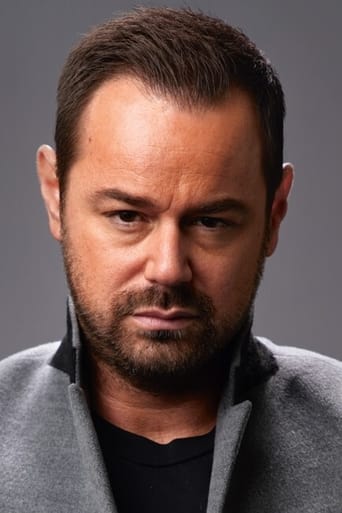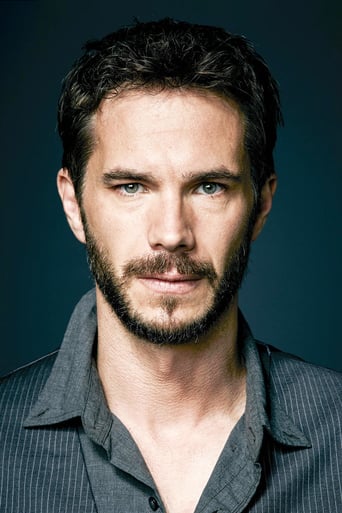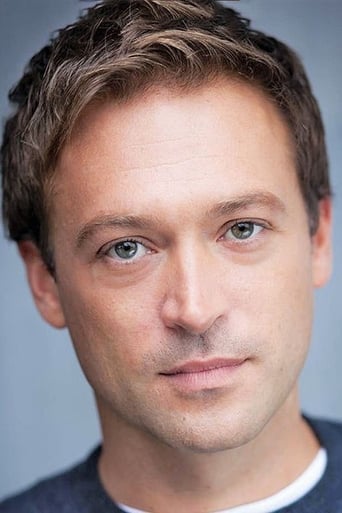Stometer
Save your money for something good and enjoyable
Matialth
Good concept, poorly executed.
Fatma Suarez
The movie's neither hopeful in contrived ways, nor hopeless in different contrived ways. Somehow it manages to be wonderful
Miles-10
I am confident that I have never before started a review by complimenting the set designers. Comparing the vintage still photos of soldiers in World War I trenches shown at the beginning of the movie to the trenches in film itself, you can see that somebody with an eye for detail recreated the look of the trench and the costume designers did a good job with the men's uniforms. The bad news is that that is one of this movie's few strong points. For example, the view of no man's land (NML) - the ground between the opposing trenches - shows a green field. It should look like a brown, pock-marked wasteland, which has been captured in many other WW I movies.The whole effect of "The Trench" is that of a filmed stage play. It could easily be transferred to the stage without losing much and maybe even gaining something. That is to say, the movie is not opened up much. Still, as a WW I buff, I enjoyed it.The actors are good, and the outline of the story is illustrative of typical situations in the war. However, the specific dialogue might be a little too 1999 rather than 1916. The film does remind us that wars are fought by men who are still boys and concerned about the things young men are obsessed by. One general situation that jumps out is the promise to the men that they would go into the enemy trenches after bombardment and after previous waves of a British attack and would not encounter any living enemy. (Mopping up, as my WW-II-veteran father called it.) But this was a typical false promise of the strategy used by both sides because the defenders would always cover themselves adequately so a majority would survive the bombardment, and they would almost always be able to get reinforcements into the trenches faster than attackers could make it across NML, and the preliminary bombardment would 1) warn the defenders an attack was coming and 2) chew up the ground making it harder for the attackers to cross, including merely rearranging the barbed wire instead of cutting through it. The result was that being the defender was always advantageous, and being the attacker was always disadvantageous in trench warfare. That's why most of the battle lines on the Western Front remained static for about four years.I would recommend this movie as worth seeing for world war buffs and Daniel Craig fans, although it likely won't be anyone's favorite movie.
Monsieur Halifax
The Trench is an average film on its own genre. It's not too fancy and it's not too overwhelmingly bad. Probably the biggest fault of this movie was low budget. You will not see very good sets and brilliant battle scenes. Also it seems like they made the life in the trench a bit too comfortable. The only problems the soldiers had living in trenches was boredom not rats and lice. It was too clean. Of course what I know about that!Acting was quite good overall. Daniel Craig was very good choice in the role of Sergeant Winter and probably saved the movie. He is truly good actor.Overall, The Trench is very average war film made with small budget. Not the total waste of time. But you haven't lost anything special if you haven't seen it. 5 out of 10
stanistreet-2
My father served in both World Wars and I never heard him swear. If his meal was not on the table on time, he might say "Confound it..." or, if he hit an unexpected set-back, he might say "Blast". Yet, in his book, "A Long Long Way", Sebastian Barry's main characters, in the trenches in Belgium, swear almost continuously, using all three *bleep* words - f,s & c. He also pointed out that the platoons were made up of soldiers from the same regiments. I never heard my father talk about WW1. He won the MC and his citation refers to his "extreme bravery in the face of enemy fire". I would love to have had a chance to talk with him about the war, but it was never mentioned. He was invalided out with shell-shock and had a piece of shrapnel lodged somewhere - again I was never told the precise location. Such was the tight lip attitude of serving officers who survived the trenches. Surprisingly, after a brief spell in the Civil Service, he re-joined the Army and served in India. Because he spoke fluent French & German, having spent a year at school in, of all places, Belgium, he was recalled sometime later & served on General de Gaulle's staff in London, doing liaison work with the French underground. We moved to Ireland, in 1948, where he spent the rest of his days. Quite recently an old friend of his, Cecil Lidell was mentioned in an article about his brother, Guy Lidell, a spy master.I remember Lidell, whom we called Little Cecil, and I also recall John Betjeman calling. He was interested in church architecture & the three of them use to visit a local Anglican church. William Boyd, possibly the best writer in the English language today, when discussing his latest novel "Restless" posed the question of what one might do if one found out that one's father had been a spy. I can only wonder! Particularly as my parents played bridge with both the Polish & Belgium ambassadors, who were neighbours. (Ireland's PM, Mr. de Valera, was regarded with suspicion by the British, particularly when he signed the Book of Condolences, at the German Embassy in Dublin, when Hitler committed suicide). Lots of local material for a spy? Alas, I shall never know, but I could always try and write a fictional story, just as William Boyd did. Some of the material is there. Such is the stuff of dreams.
Mal McKee
I watched this film just now, and was very surprised not to hear one single Irish accent. All the accents I heard were English bar one Scot. And yet the Battle is known for the senseless sacrifice of such a great number of Irishmen - from the 36th (Ulster) Division and the 16th (Irish) Division.The Ulster Division, made from the Royal Inniskilling Fusiliers, Royal Ulster Rifles and Royal Irish Fusiliers, as I understand it, "suffered some five and a half thousand casualties - out of a total divisional complement of ten or eleven thousand men. (In writing of "casualties" it is a generally accepted assumption that one out of every three was killed or died of wounds later)."So, although I missed some of the film due to a rush to the hospital before it started, I was very surprised not to have heard any Irish accents from the point I started watching it. As a film it seemed average.






